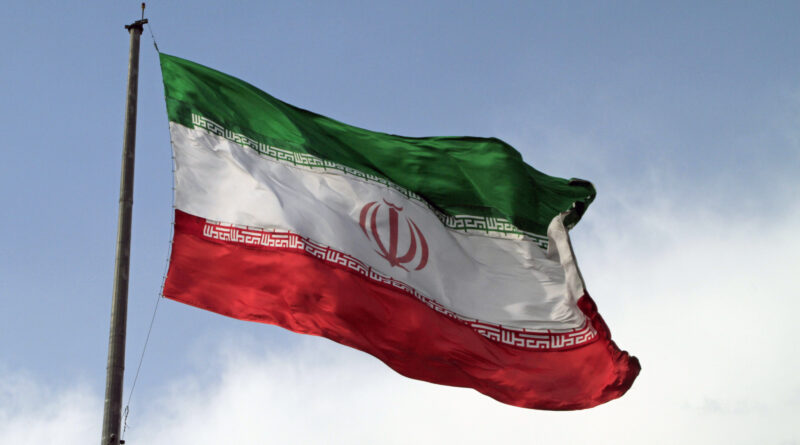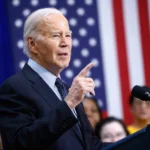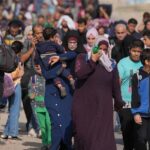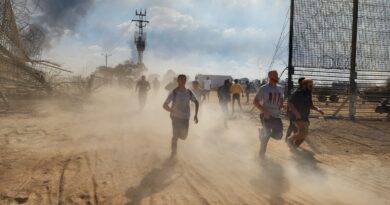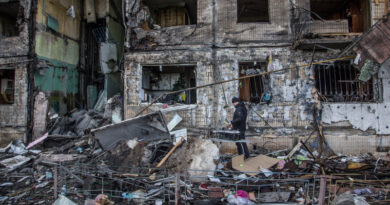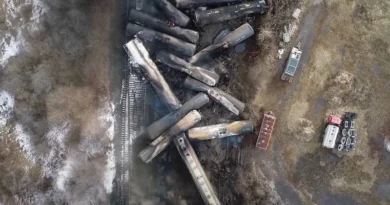If the Islamic Republic of Iran fell
EUGENIO GARCIA GASCON
Events taking place in Iran week after week show that the Islamic Republic is probably suffering its worst crisis since it was established in 1979, and it is legitimate to wonder what will happen in the country, in the Middle East and in the West if the regime falls under pressure of a sector of the population, which may not be the majority, but which is not very small in large cities either.
There is no doubt that both Israel and the United States are feeding the discontent of those who move the most and pour gasoline on the fire, without caring about what will happen if the flames end up engulfing Iran. The two powers did the same in Syria and Iraq with actions that ended up destroying those two countries. Two years after Joe Biden's narrow victory, it is clear that the president has no intention of compromising on the nuclear program and is comfortable with Iran's poor economic situation. Although he pretends to negotiate, he has not fulfilled his promise to return to the nuclear agreement that Barack Obama signed.
The riots broke out just a few weeks ago after the death of a young woman being held by the morality police, Mahsa Amini, although the authorities say it was a natural and unprovoked death. The impression is that a part of the urban population, especially young people, has lost or is losing their fear of the security forces. Although riots like these wear down the regime, it is difficult for them to bring it down if they do not become more massive, something that has not happened so far.
It is obvious that Israel and the United States are going to continue promoting the revolts and have a not insignificant number of agents inside Iran willing to do anything to turn the Islamic republic around. Assuming that these revolts evolve to end the ayatollahs, a new reality would have to be considered. There are certain possible and unpleasant consequences that may be on the horizon if a regime change occurs. However, it should not be forgotten that there are elites in Iran that have broad popular support and are ready to support the Islamic Republic in any case.
From the outset, Iran is a country susceptible to division, as has de facto happened with Iraq and Syria. This would weaken what Israel considers its biggest enemy in the region. However, the future rulers would not have a path of roses ahead, since a large part of the population, which would not disappear by magic, would fight the new regime. It is difficult for the new regime to stabilize the country overnight. There would be resistance, there would be damage, and there would be pain probably more acute than there is today, in a similar way to what we see in Syria and Iraq. Internal instability would be guaranteed for a long time and it is quite probable that violence would be generated. This is something that does not matter to Israel and the US, since a division of Iran and the serious disorders that would come, would play in favor of the two powers, as occurs in Syria and Iraq.
In the Middle East there would be important consequences. Tehran would stop supporting the Shiite minorities in the region, which would benefit Israel first, and then Sunni countries that see Islam as a threat to their stability. But this would not necessarily mean the immediate disappearance of the Shiite groups in Lebanon or Yemen. Furthermore, even if they did not have the help of the new Iranian regime, they would most likely continue to operate, without as many resources as now, but with the same determination and without as much control. The ascendancy that Tehran has today would disappear, so Tehran's influence would also disappear and the groups would act more on their own, with the risk that this implies.
Finally, as regards what has to do with the West, we are faced with an enigma. As indicated, the disappearance of the Islamic regime would not mean the disappearance of revolutionary ideas. Shiite Islamists would certainly fight against the new regime and there is no indication that they would disappear completely. In Islam, and especially in Shiite Islam, there is an idea of justice that is foreign to the West, and that Shiite groups disaffected by the new regime would continue to apply. The same can be said of the Lebanese formation Hezbollah, which shares the idea of justice characteristic of the Shi'ism that does not admit of compromises. Certainly, they would have fewer resources, but they could carry out specific operations not only in the Middle East but also in the West.
Eugenio Garcia Gascon He has been a correspondent in Jerusalem for 29 years and is a Cirilo Rodríguez award for journalism.

